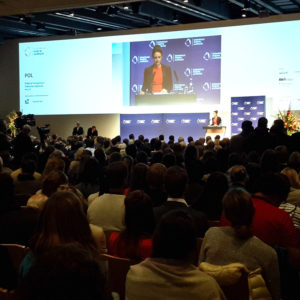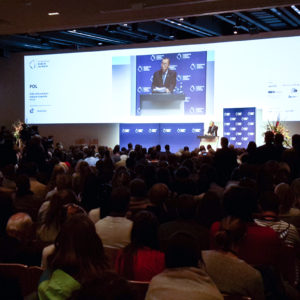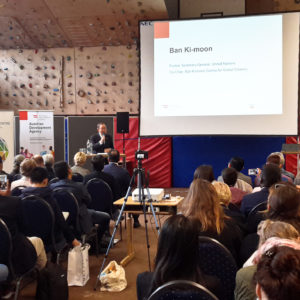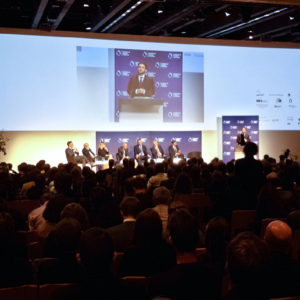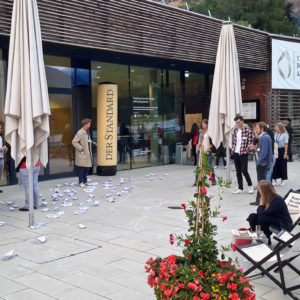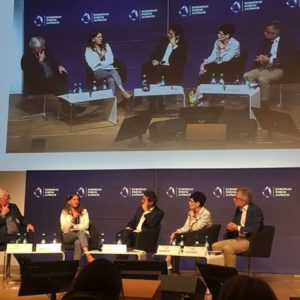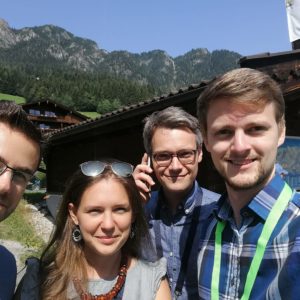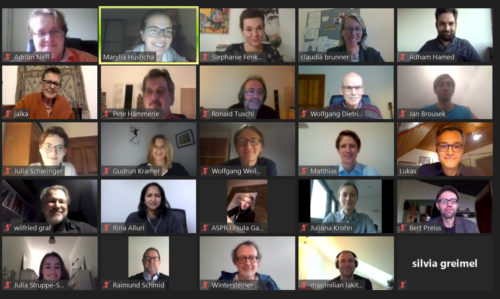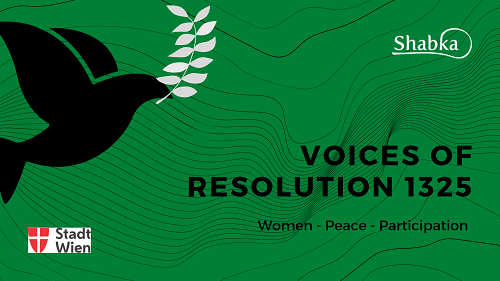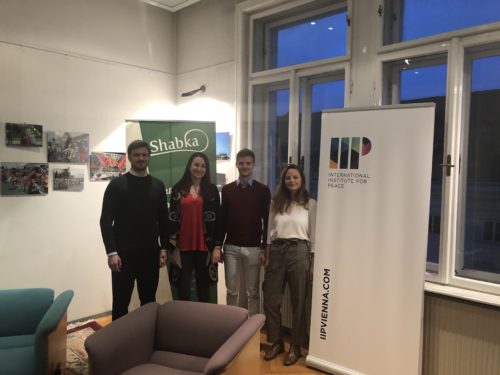Under the slogan “Diversity & Resilience”, Shabka had the distinct pleasure to participate in the Political Symposium of the European Forum Alpbach 2018 (EFA18). Immersing ourselves into discussions on global power shifts, populism and the stability of democratic systems, EFA18 participants searched for and shared innovative answers to Europe’s most pressing challenges.
Termed a “historic” event, the symposium’s first plenary consisted of a prominent cast: Austrian President Van der Bellen, Kosovo’s President Thaci, Serbian President Vucic, Slovenian President Pahor, EU Commissioner Hahn as well as two young Balkan experts, Tena Prelec and Adnan Cerimagic – an active member of the Shabka network!
The panel discussed the perspectives of EU enlargement in the Western Balkans, with a focus on the latest developments in the Belgrade-Pristina dialogue. The event marked the first time that both Vucic and Thaci have openly pleaded for border changes in front of the international community. Whilst both the Austrian President and EU Commissioner did not rule out the idea, Adnan made a strong and emotional plea against a land swap with an example of the positive post war reconciliation and multi-ethnic existence in his hometown of Doboj (BiH). The message, which was enthusiastically received by Alpbach’s audience, was clear: “The task for our generation is not to negotiate over borders but to make them irrelevant.”
Unsurprisingly, the 4-day symposium’s dominant theme was populism. A string of events, titled “Democracy under pressure”, analysed anti-democratic tendencies, social discontent, and political disenchantment in the EU and what we can do to strengthen European solidarity. During the eponymous plenary session, we were particularly pleased to see Mila Moshelova (yet another member of Shabka’s network!) go beyond mere buzzwords and vaguely-worded comments. Sharing the stage with former Bundestag President Süssmuth and former Irish deputy-PM Gilmore, Mila focused on to the positive implications of civic education as a tool in strengthening democratic resilience by equipping young people with critical and independent thinking as cornerstones for a healthy civic culture. She presented the work of Sofia Platform in teaching civic education to highschool students in Bulgaria.
Another highlight, accompanied by strong media interest, were the appearances by the counter-extremism researcher Julia Ebner. Having recently published her bestselling book, “The Rage: The vicious circle of Islamist and far-right extremism”, Julia shared the findings of her fascinating undercover research into extremist platforms and how corners of the digital space have turned into a new arena of war. A particularly telling example was her research into how young people were guided on launching radicalized campaigns using militarized and gamified language on ecrypted platforms during last year’s German election. Looking at possible solutions, Shabka’s Lukas Wank and Adam Urosevic contributed ideas to the session on possible modalities of online verification to counter online “trolling” and the crucial role of public broadcasting in combating online disinformation.

